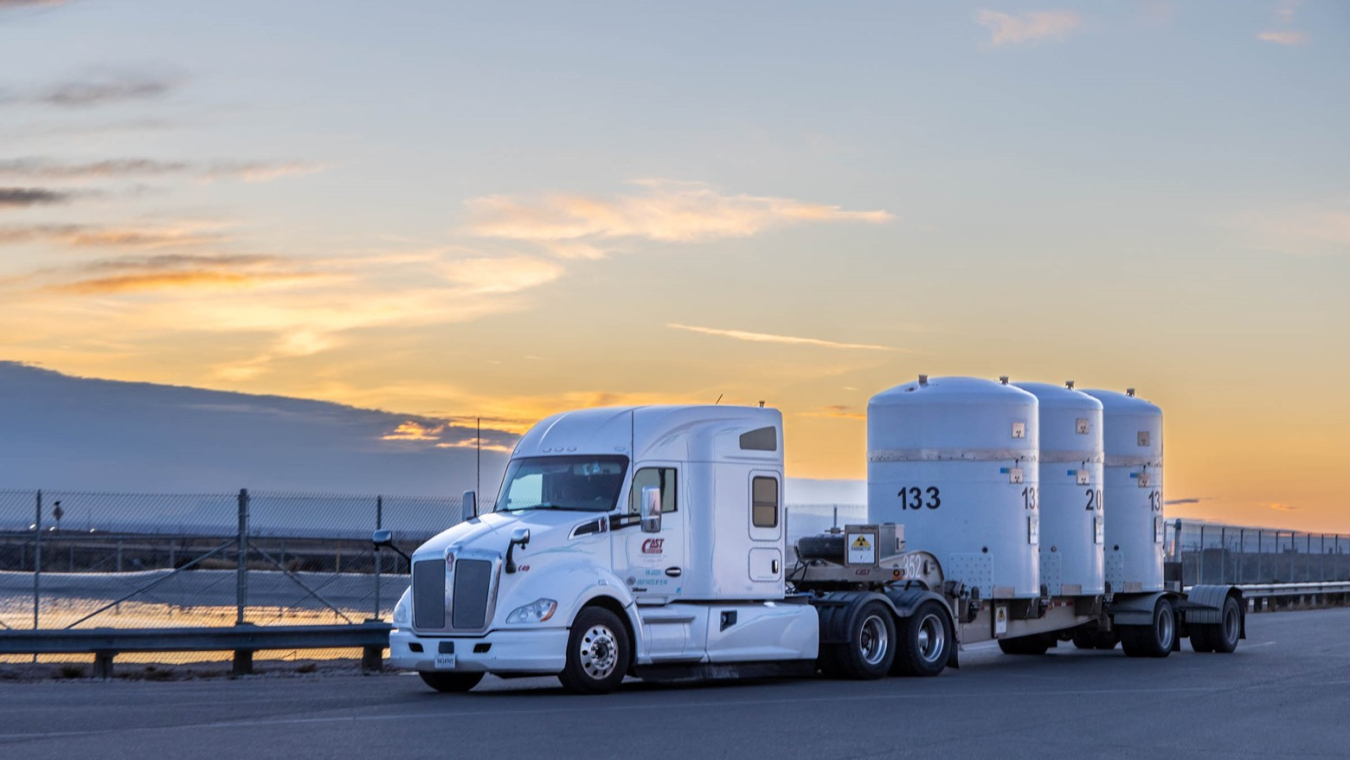EM’s Waste Isolation Pilot Plant (WIPP) recently marked a milestone after its drivers exceeded 16 million safe miles without a serious accident or injury, equivalent to 33 roundtrips to the moon or more than 642 trips around the world.
Office of Environmental Management
April 25, 2023
CARLSBAD, N.M. – EM’s Waste Isolation Pilot Plant (WIPP) recently marked a milestone after its drivers exceeded 16 million safe miles without a serious accident or injury, equivalent to 33 roundtrips to the moon or more than 642 trips around the world.
“The safety of our shipments and operations at WIPP is our top priority,” said Mark Bollinger, acting manager for EM’s Carlsbad Field Office. “What is really impressive is if you include the miles driven without waste shipments, it is over 32 million safe miles. The credit goes to the men and women who transport these shipments on a daily basis; they are the best in the business.”
Since beginning operations in 1999, WIPP has received over 13,400 transuranic (TRU) waste shipments from 22 DOE sites across the country. TRU waste is comprised of debris, residues, soil, and other items contaminated with radioactive elements — largely plutonium — that have atomic numbers greater than uranium.
CAST Specialty Transportation is the current transportation contractor transporting TRU waste shipments to the underground waste repository. WIPP drivers receive almost 200 hours of training before they transport their first shipment of TRU waste.
They also must meet extensive driving and background requirements before being considered for employment. Prior to transporting a shipment of TRU waste, they receive specific training related to these shipments. This includes use of package securement devices, radiation detection equipment and emergency management procedures.
Located in southeast New Mexico about 26 miles from Carlsbad, WIPP was constructed in the 1980s for disposal of defense-generated TRU waste. The repository is carved out of a 2,000-foot-thick salt bed formed 250 million years ago. TRU waste is disposed of 2,150 feet underground in rooms mined from the salt bed.
To receive the latest news and updates about the Office of Environmental Management, submit your e-mail address.

